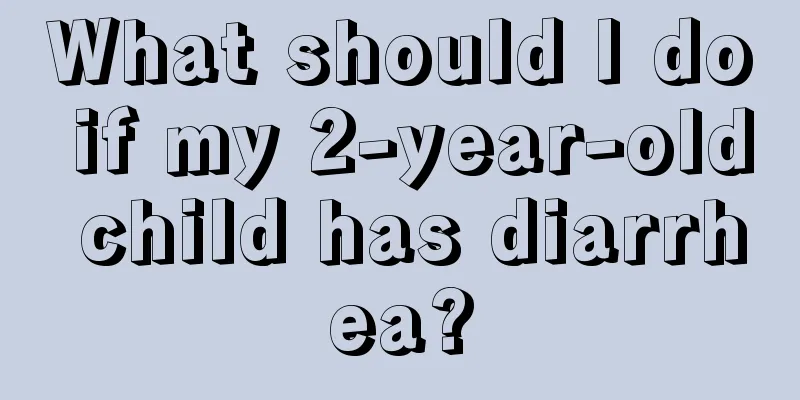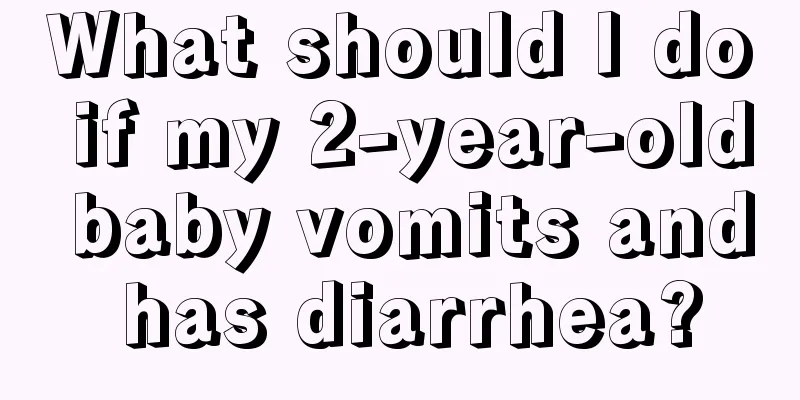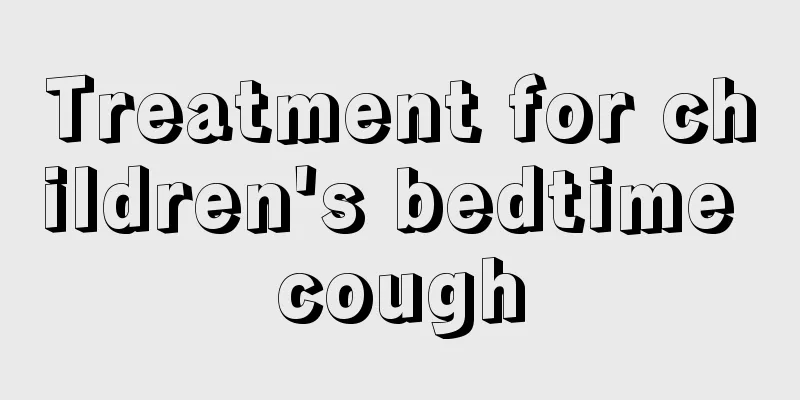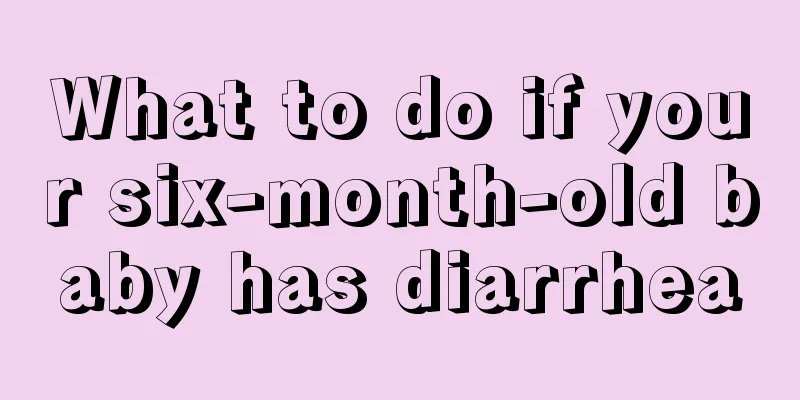What should I do if my 2-year-old child has diarrhea?

|
When a child has diarrhea, it is a symptom of a disease in the body, which will cause certain discomfort in the body. Diarrhea may be caused by the child catching a cold, or problems with diet, or the child’s digestive tract is not fully developed, so insufficient stomach acid, etc., will cause diarrhea. So, what are the specific situations? Let me do some analysis for you. 【Bait-induced diarrhea】 In short: eating too much or too little, not feeding according to scientific principles, and arbitrarily adding complementary foods can cause diarrhea. If there are too many carbohydrates, it will lead to a relative deficiency of amylase, causing indigestion and the child's stool will become green, watery or mushy. If there is too much protein, the child’s stool will be yellow-brown, watery, and have a pungent smell of rotten eggs. If children eat too much fat, their stool will be grayish white, loose and have a strong odor. How to feed scientifically is not discussed in this article. Lactose intolerance Lactose is a sugar found in milk and other dairy products. Due to the lack of lactase in the intestines to digest lactose, or the weak activity of lactase, lactose products will accumulate in the intestines. Lactose products are "hypertonic" and absorb water, drawing the water out of the intestinal wall, which is called osmosis. When there is too much water in the intestines, diarrhea will occur. This is osmotic diarrhea. Therefore, the treatment method is to give lactose-free or low-lactose dairy products, such as yogurt, cheese, and formula milk with lactose removed. Another thing is to drink milk in small amounts and multiple times to allow the stomach and intestines to gradually adapt. 【Milk allergy】 The symptoms of milk allergy are somewhat similar to those of lactose intolerance, both of which include abdominal bloating, abdominal pain, diarrhea, etc., but milk allergy also has allergic symptoms such as skin itching, urticaria and eczema, allergic rhinitis, etc. This is due to the difference in their pathogenesis. These days, everyone knows from popular science that protein is digested into amino acids by intestinal enzymes and then absorbed. However, some trace amounts of protein will be absorbed by the intestines without being digested and enter the blood. Such protein will become an "allergen" in the human body, stimulating lymphocytes to produce immunoglobulin E (IgE). When this trace amount of protein enters the human body next time, it will combine with IgE to produce an immune response, leading to the appearance of allergic symptoms. So for babies, the best food is breast milk. Babies who are allergic to cow's milk should use other foods instead, but do not use milk from other mammals (such as goat's milk) because cross immunity will occur. It is best to have plant protein (soy milk, soy milk), etc. After stopping taking it for 3 years, you can try again with a small amount. In addition to the above, in addition to the internal reasons of the child's body, there are certain infectious factors that can also cause physical discomfort. For example, infection by viral bacteria such as Salmonella and Yersinia, as well as Escherichia coli, can also cause the infection to become more serious. |
<<: How to treat allergic dermatitis in children?
>>: What's going on with white spots on my baby's fingers?
Recommend
What causes effusion in children?
Moreover, there are many types of effusion diseas...
How to prevent a two-year-old baby from crying at night
Many parents always ignore their baby's cryin...
What to do if your child has a poor memory
Many parents find that their children’s memory is...
What are the symptoms of hip dislocation in children?
Very young babies may also have some cases of hip...
What should I do if my child’s tooth is broken?
Many children will experience broken teeth as the...
What are the dangers of smoking for middle school students?
With the development of society, society has prog...
How often should newborn diapers be changed?
With the continuous development of today's so...
What should I do if my child has weak spleen and stomach?
Children's physical health is always a concer...
Why does a child sleep with his mouth open?
Some parents will observe their babies' sleep...
Rheumatic fever in children, early signs and symptoms
Rheumatic fever in children is prone to recurring...
The child's face is full of small pimples
Many parents will find a phenomenon, that is, the...
What to do if your child cries when entering kindergarten
Many children will cry non-stop when they first s...
Can children drink onion water to treat cough?
Many people know that chewing raw onions can prev...
What is the cause of the newborn's hiatus?
There are many reasons for newborn hiccups. The m...
What to do if a child has warts on his face
If you accidentally find that your child has wart...









